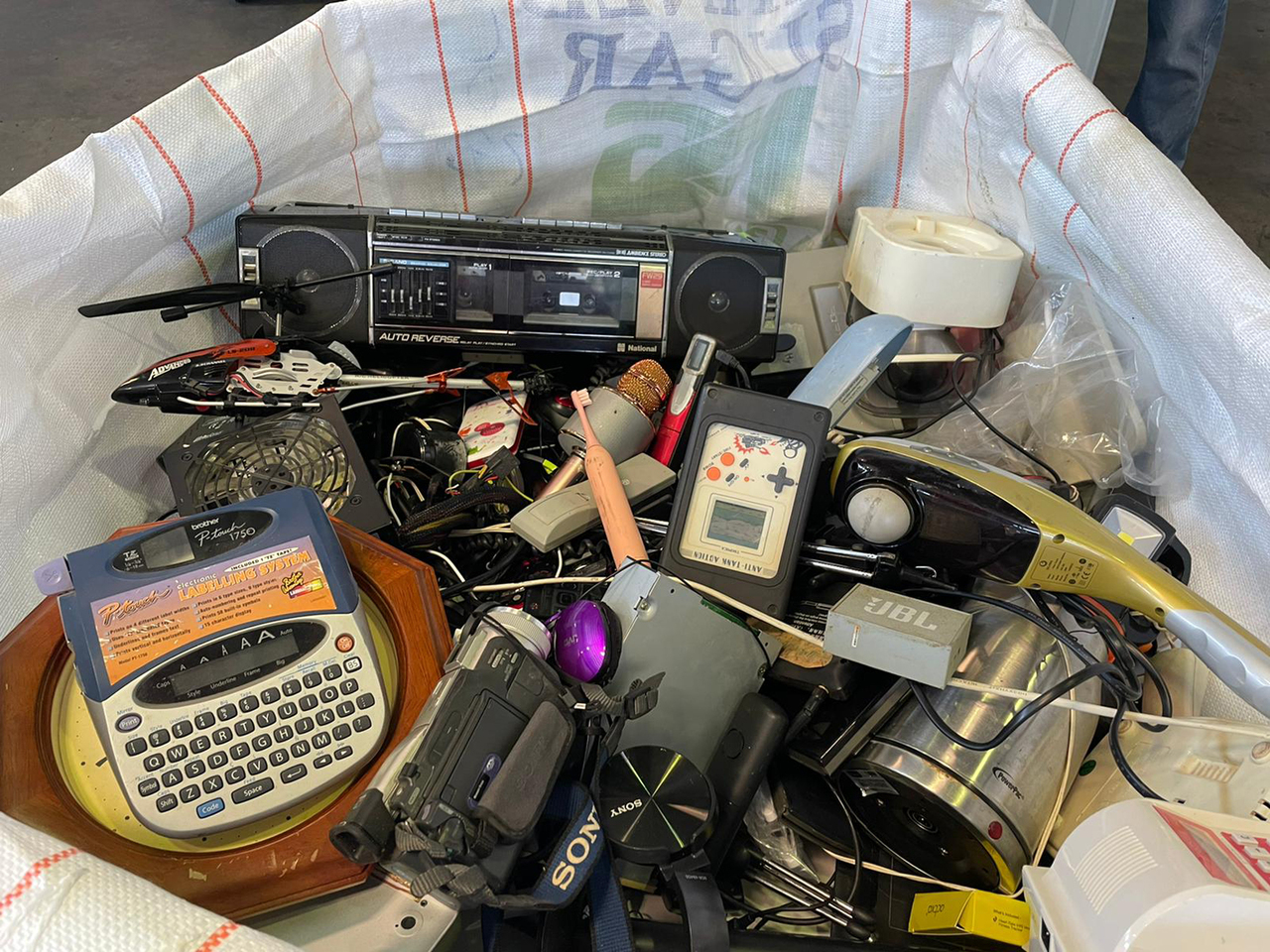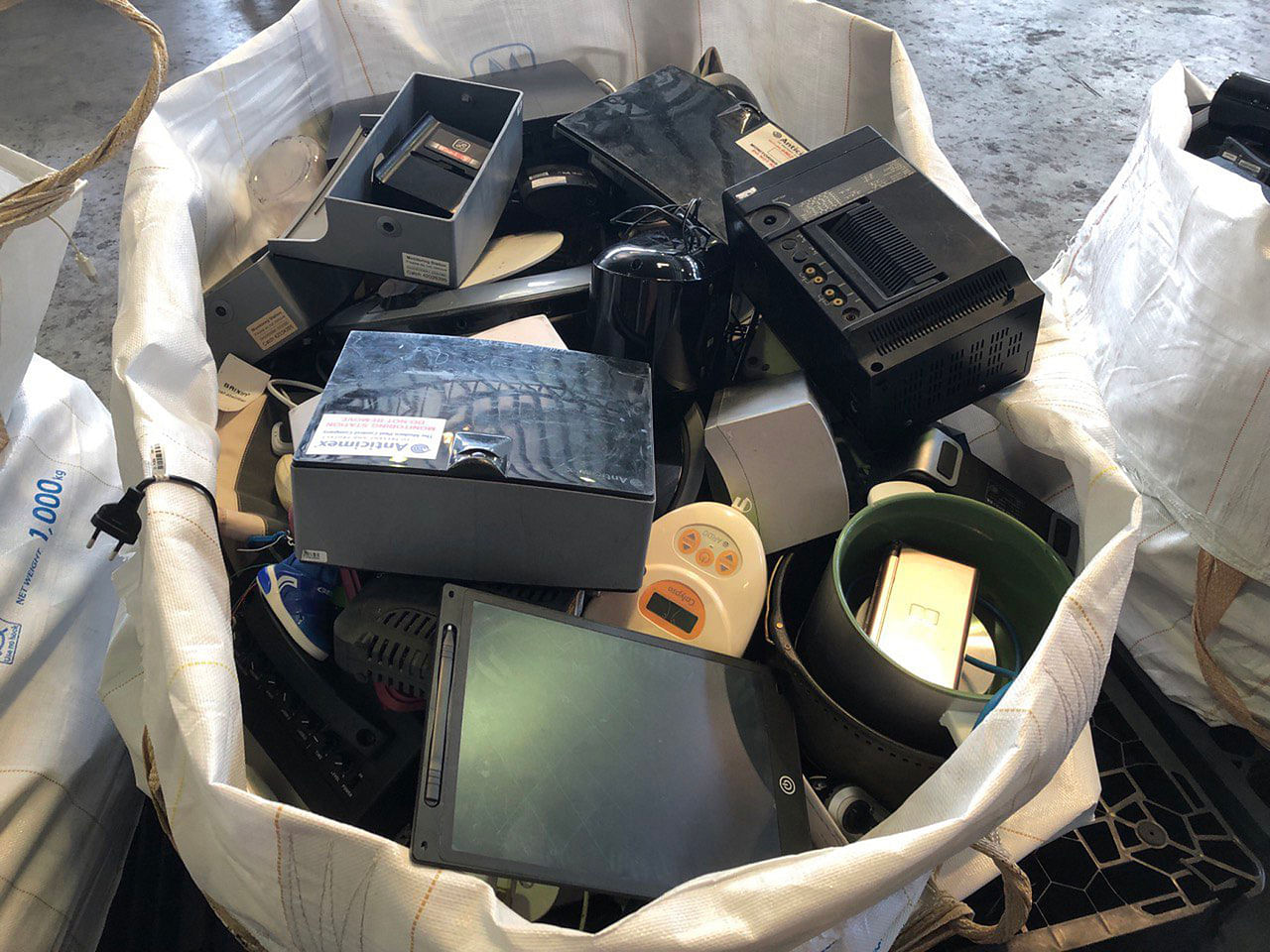Lack of awareness of what should go into e-waste bins in Singapore
Sign up now: Get ST's newsletters delivered to your inbox

Some unregulated items collected by Alba E-Waste Smart Recycling, including a boom box and a handheld massager (far right, yellow).
PHOTO: ALBA E-WASTE SMART RECYCLING
SINGAPORE - A breast pump, children's toys and a handheld massager are some items that have been found in electronic waste (e-waste) bins here.
These products, which are unregulated and not meant to be disposed of in bins under Singapore's e-waste management system, can make up about 30 per cent of the contents in the bins.
Speaking to The Straits Times, general manager Fons Krist of Alba E-Waste Smart Recycling said such unwanted goods are one of the challenges faced by the company.
Part of the Alba Group, an international waste management company, it has been licensed by the National Environment Agency (NEA) to collect e-waste.
"I think there's a lack of awareness of what's supposed to go in the bin, even though it says it clearly on the bin. People are just taking it as everything electronic can go into the bin."
Singapore has been regulating the management of certain types of e-waste since July 1, such as information and communications technology (ICT) equipment which include printers, desktops, monitors, mobile phones and even set-top boxes.
Large appliances, such as refrigerators, washing machines and air-conditioners, as well as light bulbs, tubes and batteries are also regulated.
According to the NEA, these items have been regulated based on their waste generation volumes as well as potential impact on the environment and public health if they are not disposed of properly.
Unregulated e-waste can be disposed of via programmes run by industry-led groups or public waste collectors, such as Cash-for-Trash, where residents can exchange their recyclables for money.
At the Alba logistics and sorting centre in Tuas, unregulated e-waste is placed into big canvas bags. Recyclers may take them in out of goodwill. Those that get left behind are kept until a willing recycler comes along, or is paid to take these items in.
While these unregulated items will still be sent to recyclers, Mr Krist said: "This creates stress on the collection system as we would have to dedicate extra resources such as manpower to filter out the unregulated items.
"These resources could be better utilised to maintain an efficient collection system."
Another challenge comes from people disposing of their e-waste together with the original packaging, which also results in the bins filling up faster.
Employees at the sorting hub have to unpack the item from the packaging and find ways to dispose of the packaging material properly.
There have also been instances where people throw e-waste into the wrong bins. The bins are meant for smaller consumer products like ICT equipment, bulbs and batteries. But there have been instances where people leave their large television sets next to these bins.

Some unregulated items collected by Alba E-Waste Smart Recycling, including a breast pump (centre, in beige and orange).
PHOTO: ST
Mr Krist said: "We had an incident where someone threw a heavy laptop battery into the lamps compartment, breaking all the lamps... We have anticipated these challenges but we hope in future that it becomes clear what is supposed to go in the bins."
He added that the proper disposal guidelines have been posted on the company's social media pages, and it is also working with retailers to create awareness among consumers.
These guidelines will also be emphasised during education talks in the community, such as at schools.


